
Fabzed 80mg Tablet
Manufacturer
Ryze Lifecare
Salt Composition
Febuxostat (80mg)
Key Information
Short Description
Fabzed 80mg Tablet is used to treat and prevent gout by keeping uric acid levels low.
Dosage Form
Tablet
Introduction
Fabzed 80mg Tablet is a medication used to treat and prevent gout, a condition characterized by excessive uric acid in the body forming crystals around the joints, leading to painful and swollen joints. This medicine helps to maintain low uric acid levels. It is important to follow the prescribed dosage and be aware of potential side effects and warnings, especially regarding alcohol consumption, pregnancy, and breastfeeding.
Directions for Use
Take this medicine in the dose and duration as advised by your doctor. Swallow it as a whole. Do not chew, crush, or break it. Fabzed 80mg Tablet may be taken with or without food, but it is better to take it at a fixed time.
How it works
Fabzed 80mg Tablet is a xanthine oxidase inhibitor. It works by decreasing blood uric acid, which is the chemical that causes gout.
Quick Tips
Your doctor has prescribed Fabzed 80mg Tablet to reduce episodes of gout attack. Take it at the same time every day with or without food. Take plenty of fluids (2-3 litres) daily while on Fabzed 80mg Tablet. When you first start taking this medicine, you might have more gout attacks. Do not stop Fabzed 80mg Tablet during an acute attack as that could make it worse. Do not consume alcohol while taking this medicine as it may cause your gout to flare up. Stop taking this medicine and inform your doctor straight away if you have symptoms like rash, itchiness, difficulties in breathing, fever, or swelling of limbs or face.
Related Medicines
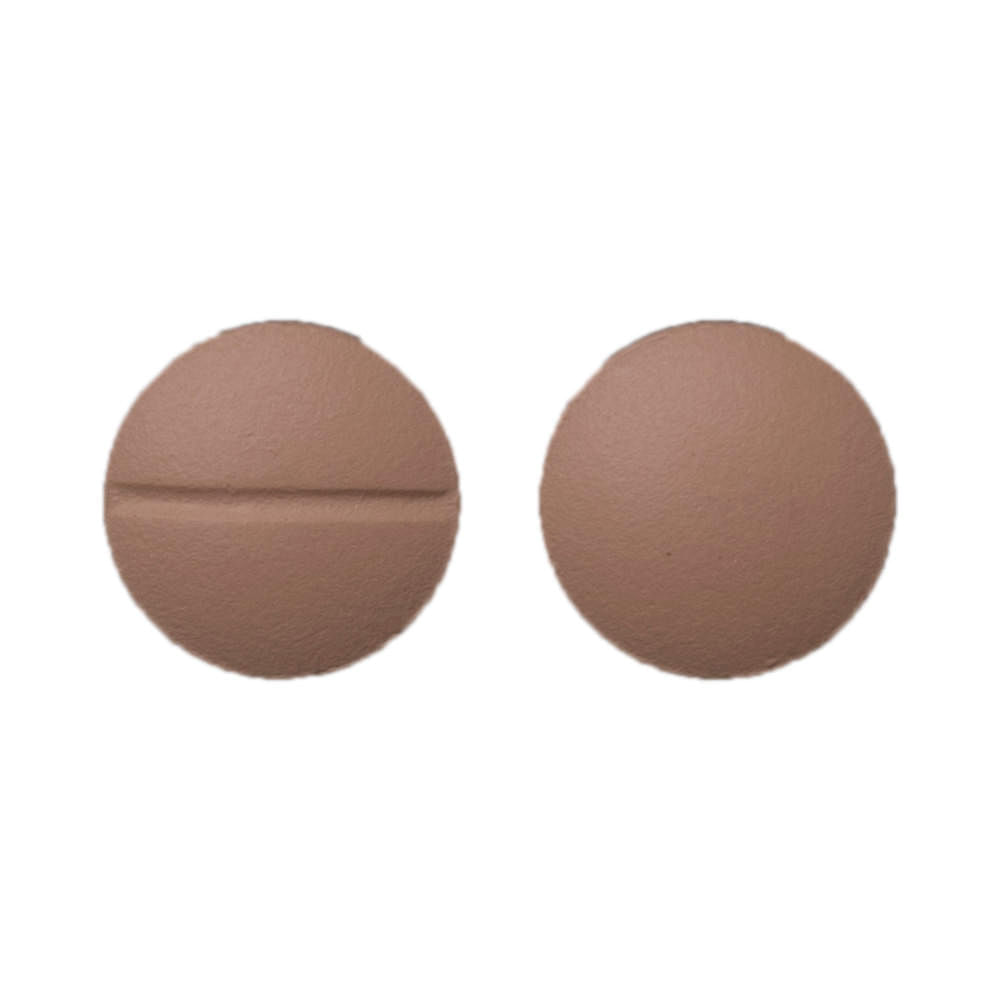
Febuget 80 Tablet
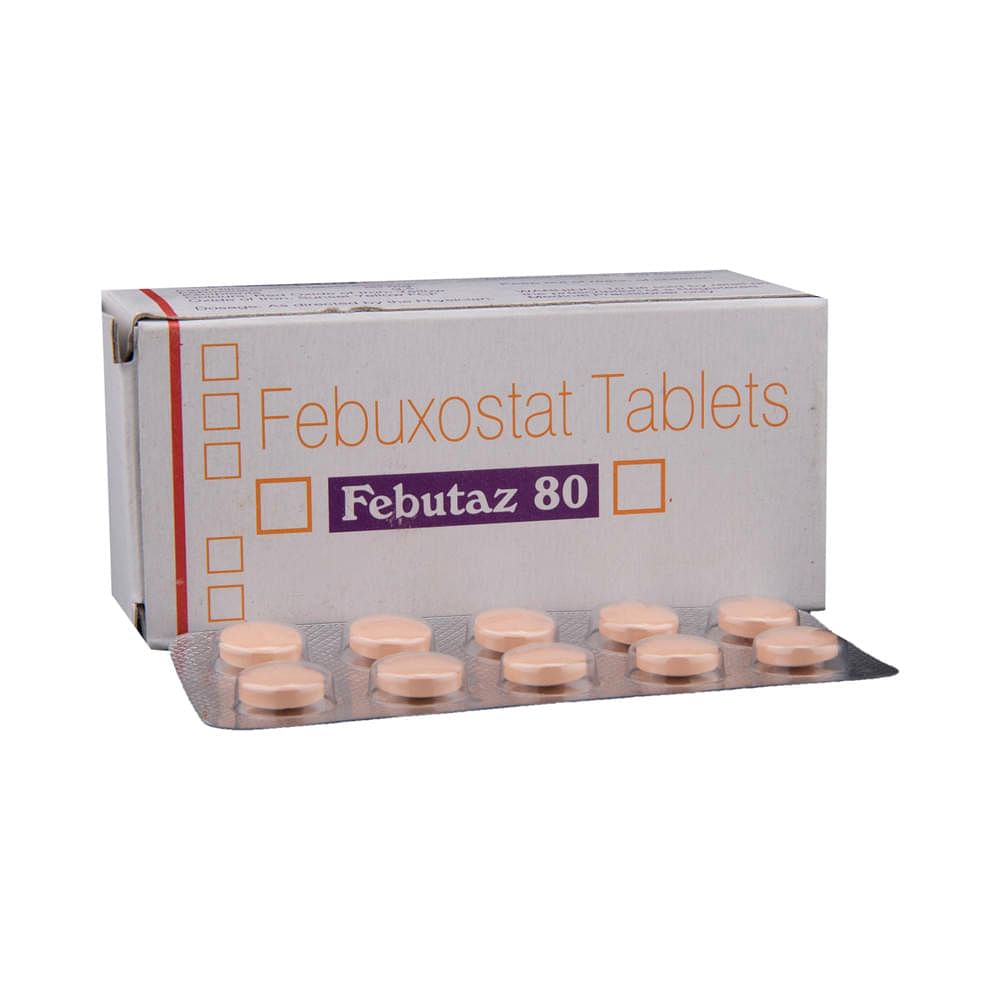
Febutaz 80 Tablet
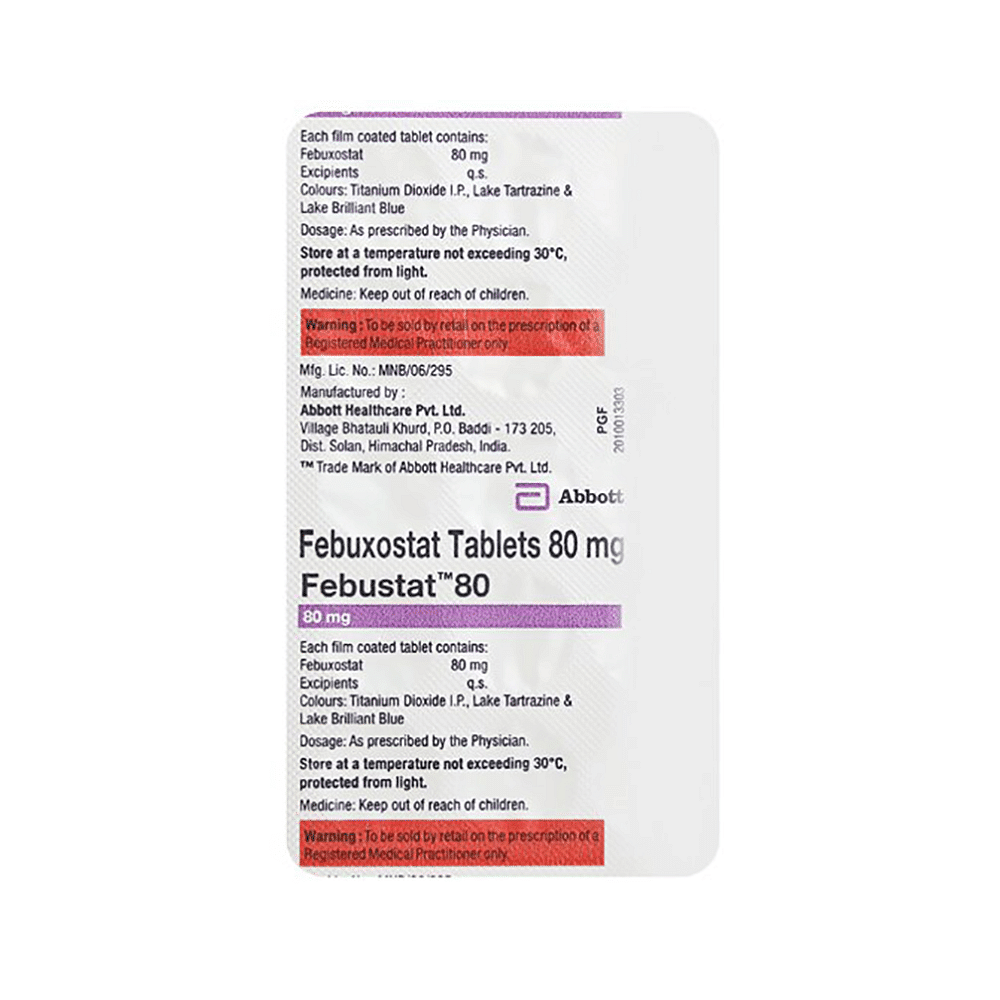
Febustat 80 Tablet
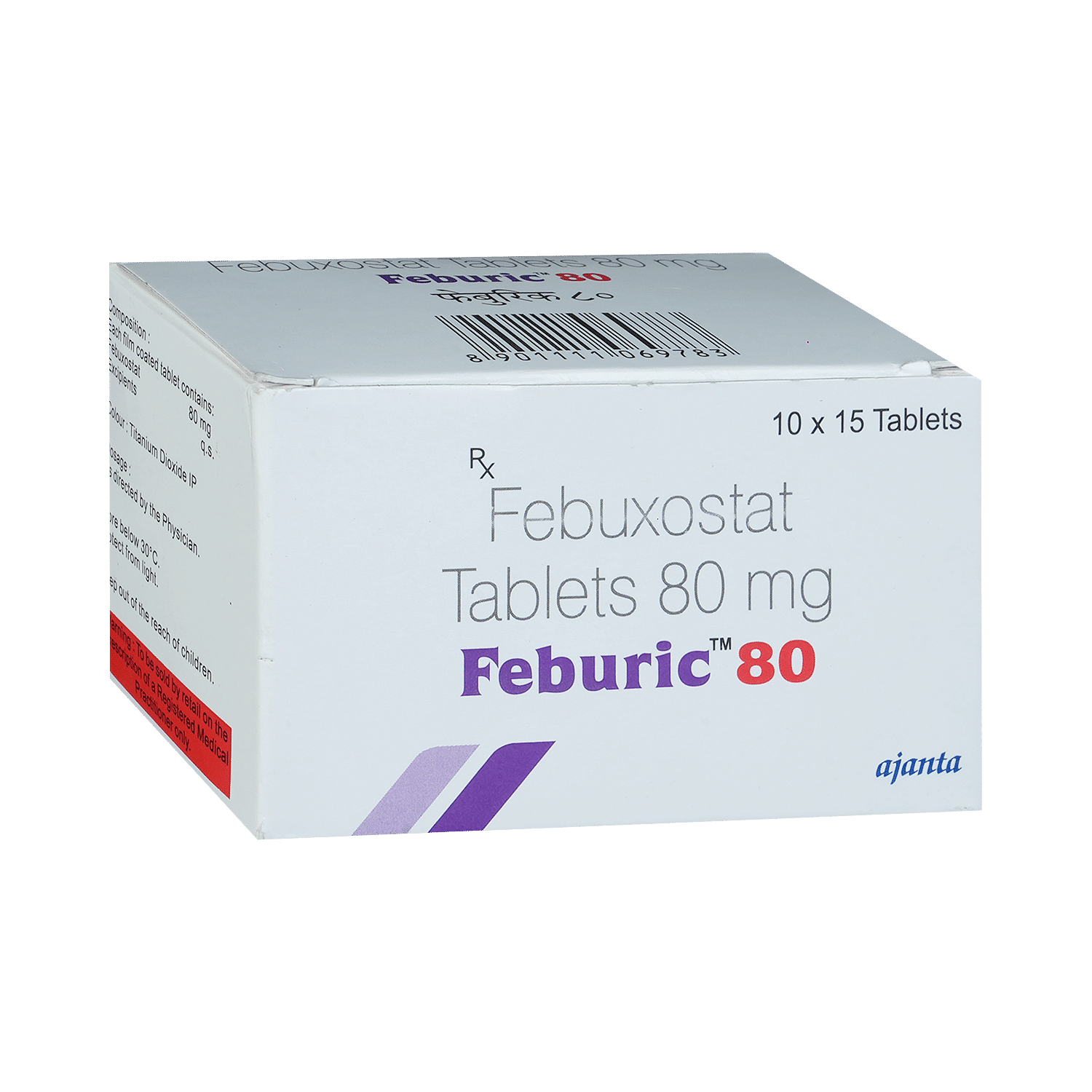
Feburic 80 Tablet
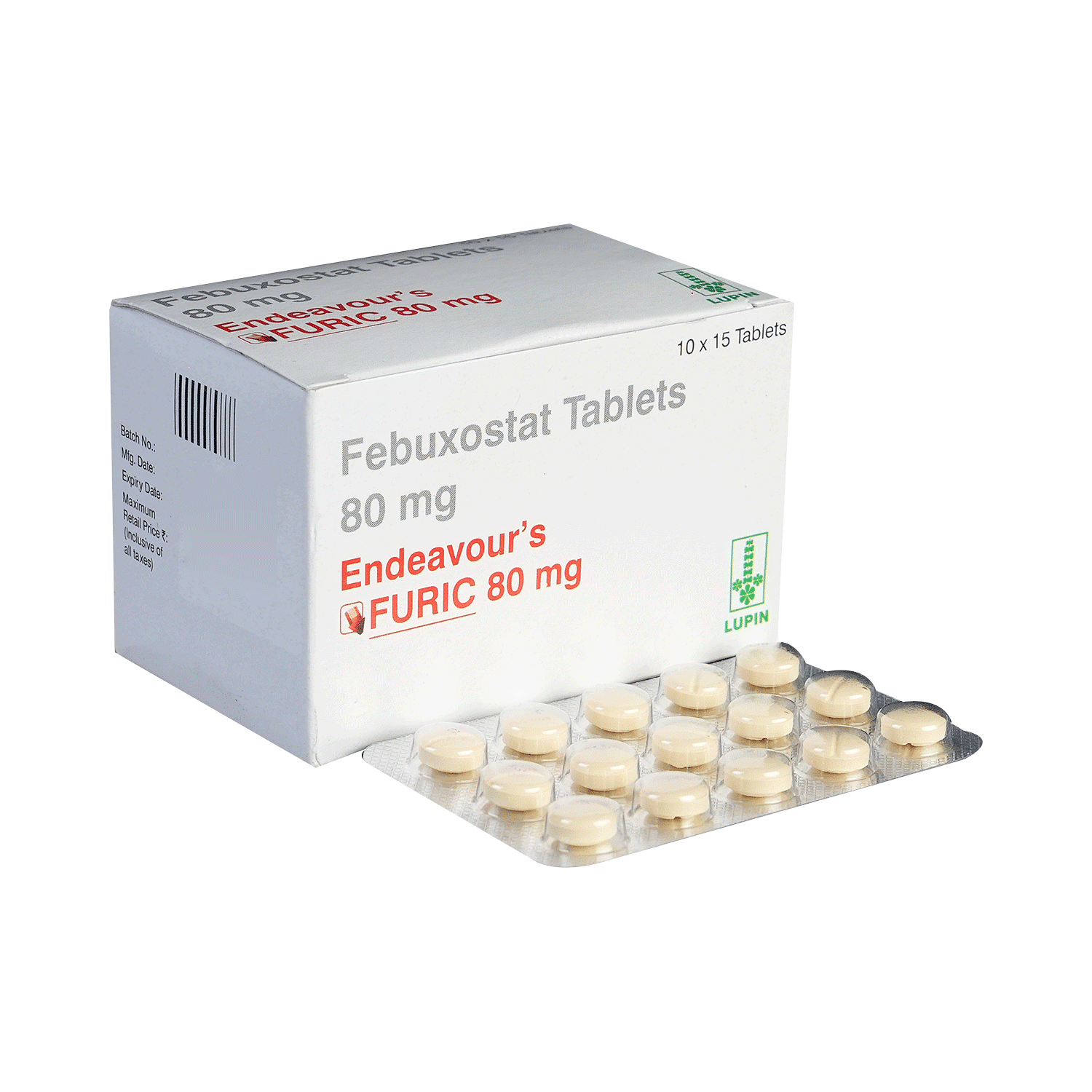
Furic 80mg Tablet

Ubexa 80 Tablet

Urichek 80mg Tablet

Aciclosat 80mg Tablet

Gofeb 80mg Tablet

Tatsox 80mg Tablet
Frequently asked questions
What is Fabzed 80mg Tablet used for?
Fabzed 80mg Tablet is used to treat gout in adults who have not responded to allopurinol or are unable to take allopurinol. Gout is a type of arthritis characterized by the buildup of uric acid in the joints, leading to sudden attacks of redness, swelling, pain, and heat in one or more joints.
What are the side effects of Fabzed 80mg Tablet?
Common side effects of Fabzed 80mg Tablet may include abnormal liver test results, diarrhea, headache, rash, nausea, and increased gout symptoms or localized swelling due to fluid retention (edema). Serious side effects may include heart problems, gout flares, liver problems, and severe skin or allergic reactions. Inform your doctor immediately if you experience any serious side effects.
How long should I take Fabzed 80mg Tablet?
The dose and duration of Fabzed 80mg Tablet vary depending on individual circumstances and are determined by your doctor. It may take several months for the medication to begin preventing gout attacks. Do not stop taking Fabzed 80mg Tablet without consulting your doctor, even if you feel better.
What is the best time to take Fabzed 80mg Tablet?
Fabzed 80mg Tablet should be taken once a day, at any time of day, but preferably at the same time each day to maintain consistent levels of the medication in the body. You can take this medicine with or without food.
Can Fabzed 80mg Tablet cause kidney damage?
Fabzed 80mg Tablet may affect kidney function in some individuals, although this is uncommon. You may experience blood in the urine, frequent urination, kidney stones, abnormal urine tests, or a reduction in kidney function. Rarely, it may cause changes or a decrease in urine amount due to kidney inflammation (tubulointerstitial nephritis). Consult your doctor if your kidney function is affected.
Can I stop taking Fabzed 80mg Tablet on my own if I am fine and have no pain or swelling in joints?
No, do not stop taking Fabzed 80mg Tablet without consulting your doctor, even if you feel better. Discontinuing the medication may increase uric acid levels and worsen symptoms due to the formation of new urate crystals in and around joints and kidneys.
What are the things which I need to know while taking Fabzed 80mg Tablet?
You should be aware that Fabzed 80mg Tablet may cause serious heart problems, which can be life-threatening in some cases. Symptoms of heart problems include chest pain, shortness of breath, dizziness, fainting, rapid or irregular heartbeat, numbness or weakness in one side of your body, slurring of speech, and sudden blurry vision or severe headache. Inform your doctor and seek medical help immediately if you experience any of these symptoms.
Can Fabzed 80mg Tablet cause any liver problems?
Yes, Fabzed 80mg Tablet use may cause liver problems. Your doctor may recommend regular blood tests to monitor liver function before and during treatment. Inform your doctor if you notice symptoms such as fatigue, pain, or tenderness on the right side of the abdomen, loss of appetite, dark or tea-colored urine, or yellowing of the skin or eyes (jaundice).


